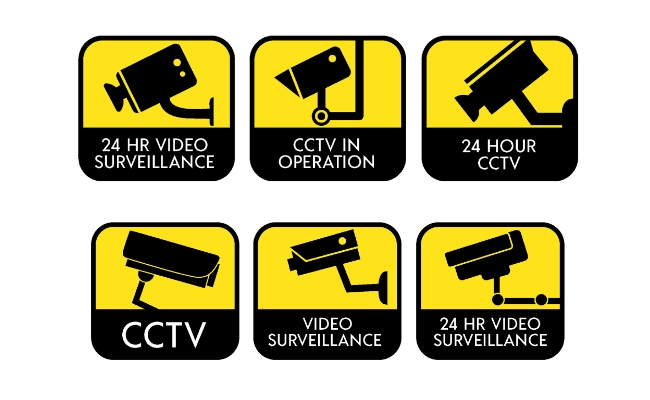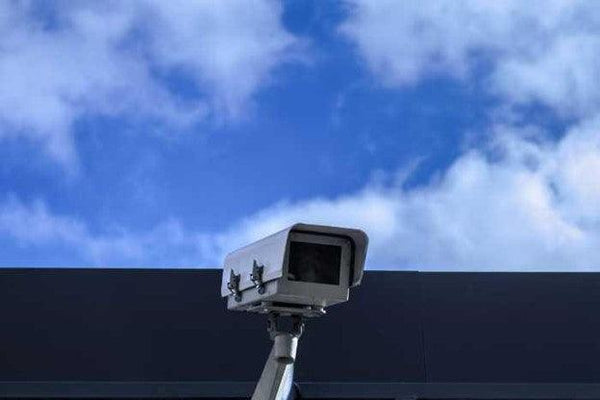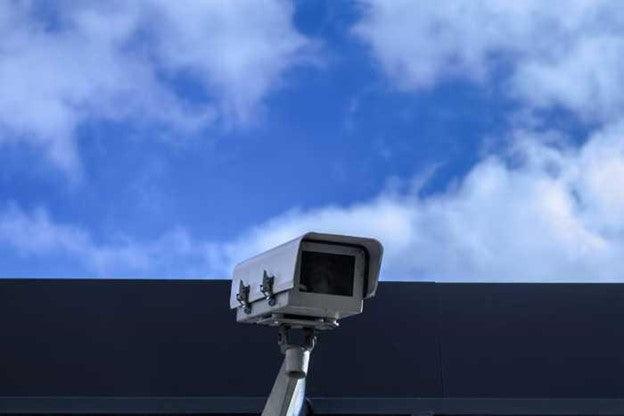Neighbors can legally point security cameras at your house, depending on local laws. Privacy concerns and regulations may vary by jurisdiction.
Security cameras have become a staple in modern home security, offering peace of mind and an added layer of protection. With the rise of smart home technology, more homeowners are installing these devices to monitor their properties. Yet, this trend raises questions about privacy and neighborly etiquette.
The legality of pointing security cameras towards someone else’s house depends largely on local laws and regulations, which aim to balance security needs with privacy rights. Understanding these rules is crucial for both camera owners and those on the lens’s receiving end. This guide aims to navigate the complex landscape of residential surveillance, ensuring that homeowners can safeguard their property while respecting their neighbors’ privacy.

Credit: reolink.com
Legal Perspectives On Security Cameras Facing Neighboring Properties
Many homeowners install security cameras for safety. Yet, when cameras point towards a neighbor’s property, questions arise. Understanding the legal stance on such matters is crucial.
Privacy Laws Governing Surveillance Equipment
Privacy laws set limits on surveillance. These laws vary by location. They aim to protect individuals from intrusive monitoring. Homeowners must respect these laws when installing cameras. Expectation of privacy is a key concept. Areas like bathrooms and bedrooms hold a high expectation of privacy. Cameras should not invade these spaces.
- Consent may be required for recording in some regions.
- Audio recording often has stricter regulations.
- Laws may dictate notice requirements for surveillance.
Property Boundaries And Camera Angles
Camera placement and angle are important. They must respect property boundaries. A camera should not view areas where privacy is expected. Proper angles can prevent legal issues.
| Placement | Legal Impact |
|---|---|
| Directly on the boundary | Potential for disputes |
| Oriented away from neighbor | Generally acceptable |
| Pointing to neighbor’s window | Often illegal |
Homeowners should adjust angles to avoid neighbor’s private spaces. This reduces conflicts and respects privacy.

Credit: montavue.com
Understanding The Right To Privacy
Understanding the right to privacy is crucial in today’s tech-driven world. Home security is essential, yet it must respect privacy laws. Neighbors’ cameras pointing at your property can raise concerns. Let’s delve into privacy expectations and how to strike a balance between security and privacy.
Expectation Of Privacy In Residential Areas
Everyone values their privacy, especially at home. Laws often protect this privacy. Security cameras should not invade personal spaces. Yet, public areas have less privacy expectation.
- Home interiors are private zones.
- Yards may have limited privacy.
- Streets and sidewalks are public spaces.
Understanding where privacy begins and ends is key. It helps determine camera placements.
Balancing Security Needs With Privacy Concerns
Security is vital, but it shouldn’t override privacy. Open communication with neighbors can prevent conflicts. Agree on camera angles to protect both interests.
| Security Action | Privacy Safekeeping |
|---|---|
| Install cameras at entry points. | Ensure cameras face your property. |
| Use motion detectors for alerts. | Set field of view away from neighbors. |
Respectful dialogue and clear boundaries promote harmony. Both security and privacy can coexist with the right approach.
Navigating Neighborly Relations And Surveillance
Living in a community often means balancing privacy with safety. A neighbor’s security camera pointed at your house can stir up discomfort. It’s important to know your rights and how to address these concerns without souring neighborly ties. In this segment, we’ll explore effective ways to communicate and resolve any issues that arise from surveillance equipment.
Communication Strategies For Camera Concerns
Open dialogue is key when dealing with security camera worries. A friendly conversation can clear misunderstandings. Here are steps to approach your neighbor:
- Request a meeting to discuss the camera.
- Express your concerns calmly and politely.
- Seek a compromise on camera placement.
- Discuss privacy laws in your area.
Remember to document your efforts. Notes can help if the issue escalates.
Resolving Disputes Amicably
When direct communication fails, consider these options:
- Mediation services can provide a neutral space for discussion.
- Check with HOA or local authorities about regulations.
- Install privacy screens or landscaping to block the camera’s view.
Legal advice can help if you can’t resolve the issue together. Always aim for a peaceful solution that respects both privacy and security needs.
Technical Aspects Of Security Cameras
Exploring the technical aspects of security cameras reveals much. It helps us understand how neighbors might use them. Let’s dive into camera types and how they see.
Camera Types And Their Implications
Security cameras come in various shapes and sizes. Each type serves a different purpose. Knowing these types helps us grasp their potential impact.
- Dome Cameras: Often used indoors. Hard to spot their direction.
- Bullet Cameras: Long and cylindrical. Great for viewing long distances.
- PTZ Cameras: Pan, Tilt, and Zoom features. Can move to follow movement.
- Wireless IP Cameras: Connects over the internet. Easy to access remotely.
Field Of View Considerations
The field of view is crucial. It determines what the camera can see. Wide angles see more but in less detail. Narrow angles see less but in more detail.
| Camera Type | Field of View |
|---|---|
| Dome Cameras | 80-180 degrees |
| Bullet Cameras | 75-100 degrees |
| PTZ Cameras | 180-360 degrees |
| Wireless IP Cameras | 110-180 degrees |
Understanding these aspects helps us. We know what cameras can do. We can better manage privacy concerns with neighbors.
Local Laws And Ordinances Impacting Surveillance
Local Laws and Ordinances Impacting Surveillance play a crucial role in determining whether your neighbor can point a security camera towards your house. These laws vary widely across different regions. Understanding these regulations is essential to protect your privacy and ensure legality in the use of surveillance devices.
Differences In Surveillance Laws By Jurisdiction
Laws on surveillance cameras differ greatly from one place to another. Some areas allow cameras to face a neighbor’s property, while others do not. Key factors often include the camera’s purpose, whether it records audio, and how it impacts privacy.
| Region | Camera Facing Neighbor’s Property | Audio Recording | Privacy Concerns |
|---|---|---|---|
| Region A | Allowed | Not Allowed | High |
| Region B | Not Allowed | Allowed | Medium |
| Region C | Allowed with Consent | Allowed | Low |
How To Research Local Surveillance Regulations
Understanding your local surveillance laws is key. Start with these steps:
- Visit your local government’s website.
- Look for a section on privacy or surveillance laws.
- Contact a local official if you need more help.
Libraries and legal aid offices can also provide useful information.
- Libraries often have legal guides or staff knowledgeable about local laws.
- Legal aid offices offer free advice, especially on privacy rights.
Best Practices For Installing Home Security Cameras
Security cameras add safety to homes. Proper placement is key. They must respect privacy and legality. These practices ensure effectiveness and neighborly respect.
Strategies To Avoid Infringing On Neighbors’ Privacy
- Angle cameras correctly: Point them at your property. Avoid neighbor’s windows and backyards.
- Use privacy masks: Block out areas not needed for surveillance.
- Notify neighbors: Share camera plans. Address any concerns.
- Keep footage secure: Protect stored video to prevent misuse.
Professional Installation Vs. Diy
Choosing between professional help and DIY affects camera setup.
| Professional Installation | DIY |
|---|---|
| Expert positioning | Personal control |
| Time-saving | Cost-effective |
| Technical support | Custom setup |
Consider skill, time, and budget. Both options require privacy mindfulness.
Legal Recourse And Privacy Protection Measures
Concerns around security cameras pointing at your house are growing. Knowing your legal rights and protection measures is vital. Let’s explore the ways to address these concerns effectively.
When To Seek Legal Advice
Privacy invasion is a serious issue. If you notice a neighbor’s camera aimed at your property, it’s crucial to understand when to seek legal help:
- Constant surveillance that feels invasive.
- Cameras pointing at private areas, like bedrooms or backyards.
- Lack of response from neighbors after raising concerns.
- Documented misuse of recorded footage.
Contact a lawyer for advice on local privacy laws. They can guide you on steps to take against unwanted surveillance.
Using Technology To Protect Privacy
Advancements in technology offer solutions to enhance your privacy at home. Consider these options:
| Technology | Use |
|---|---|
| Window Films | Obscure the view into your home. |
| Privacy Screens | Block camera angles from neighbors. |
| Landscaping | Plant trees or shrubs as natural barriers. |
| Smart Curtains | Automate opening and closing for privacy. |
Using such measures, you can shield your home from prying eyes. Invest in these technologies to ensure your private life remains private.

Credit: montavue.com
Future Of Home Surveillance And Privacy Rights
The future of home surveillance and privacy rights stirs much debate. Homeowners invest in security cameras for safety. Yet, when cameras face a neighbor’s property, privacy concerns arise. The balance between security and privacy is delicate. Technologies evolve, and so do laws about home surveillance.
Emerging Technologies And Legal Implications
Advanced surveillance tech introduces new privacy challenges. Cameras now have facial recognition and motion tracking. These features can capture detailed data beyond property lines. This raises important legal questions.
- Facial Recognition: Identifies individuals, prompting consent issues.
- Motion Tracking: Follows movement, possibly infringing on neighbors’ privacy.
- Data Storage: Holds captured footage, leading to data security concerns.
Laws must adapt to protect citizens from intrusive surveillance. Courts often address disputes between neighbors over camera usage. The right to privacy must balance with the right to protect property.
Predictions For Changes In Legislation
Legislation is likely to evolve with technology. Predictions for future laws include:
- Clearer boundaries on where cameras can point.
- Restrictions on data capture, particularly facial recognition.
- Guidelines for data storage and sharing.
These changes aim to respect privacy without compromising security. Transparency in camera usage and data handling will be key. Neighbors will need to communicate to maintain trust.
Frequently Asked Questions
Can Neighbors Legally Point Cameras At Your Home?
Neighbors can install security cameras pointing towards your property, but they must respect your privacy rights. Laws vary by jurisdiction, so local regulations should be consulted.
What Are Privacy Laws On Neighbors’ Security Cameras?
Privacy laws typically prevent cameras from recording where individuals have a reasonable expectation of privacy, such as inside their homes or in fenced backyards.
How To Block Neighbors’ Security Cameras Legally?
Blocking a neighbor’s security camera should be done without damaging property. Options include planting trees, installing privacy screens, or using window films.
Who To Contact If A Neighbor’s Camera Invades Privacy?
If you believe a neighbor’s camera is invading your privacy, you can contact local law enforcement or a legal expert to understand your rights and potential actions.
Can You Request Removal Of Neighbor’s Camera?
You can request your neighbor to reposition or remove their camera, but if they refuse, legal advice may be necessary to determine further steps based on local laws.
Conclusion
Navigating the delicate balance of privacy and security is crucial. Understanding your rights regarding neighbors’ cameras is key. Ensure a harmonious community by communicating concerns and seeking legal advice if necessary. Remember, a respectful approach can lead to amicable solutions for everyone’s peace of mind.





